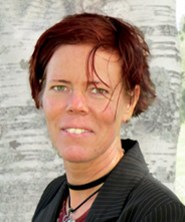
Within my project funded by my Wallenberg Scholar Grant (2020-30) I lead a cross-disciplinary team researching how disabilities affect people's ageing and health in Swedish society across time.
My research is mainly based on parish registers digitized by the Demographic Data Base (DDB). These registers are also used in my current DISTIME project funded by my Wallenberg Scholar Grant (MAW 2019.0003; KAW 2023.0230) where I lead a team researching disabled individuals' life and ageing in Swedish society and populations from the 1800s until today. In 2016-21, I led a disability project financed by the European Research Council (ERC Consolidator Grant, no. 64725). My historical research have received an interdisciplinary profile, as I have gained knowledge in theories and methods developed in statistics, demography, geography, sociology, gender studies and the field of disability studies.
I have extensive experience of teaching history at al levels and the supervision of students. Presently and due to my grants funded by the Wallenberg Foundation, I primarily conduct disability research beside supervising PhD students. Since Sept. 2023, I act as the major professor of the history subject at the Faculty of Arts. From 2011 to 2015, I was Deputy Dean at this faculty.
Combining sources
My historical demographic research is characterized by a gender perspective that has followed me since I as student examined men and women's emigration to America from my home municipallity Kisa in southern Östergötland. I discovered not only how information-rich parish registers are, but also the benefits with combining them with other sources, not least the letters US immigrants from Kisa sent home. A mix of sources are also used in my thesis (2003), which investigates gendered migration motives and migration patterns in Sundsvall 1840-1892. The use of different data further characterizes my analyses of the life of criminal men and women, and of urban women, their family and work.
Analyzing life courses
The digitized parish registers of the Demographic Data Base enable quantitative studies of individuals' marriage patterns, career paths, family formation, and socio-geographic mobility. I often employ statistical life course analysis that helps me estimate the individual risk/chance to migrating, for example, making a career, marrying or confronting premature death. Such demographic life events reflect people's living conditions and how these vary depending on historical contexts and whether they were men, women, poor, wealthy, migrants, criminal or disabled, for example.